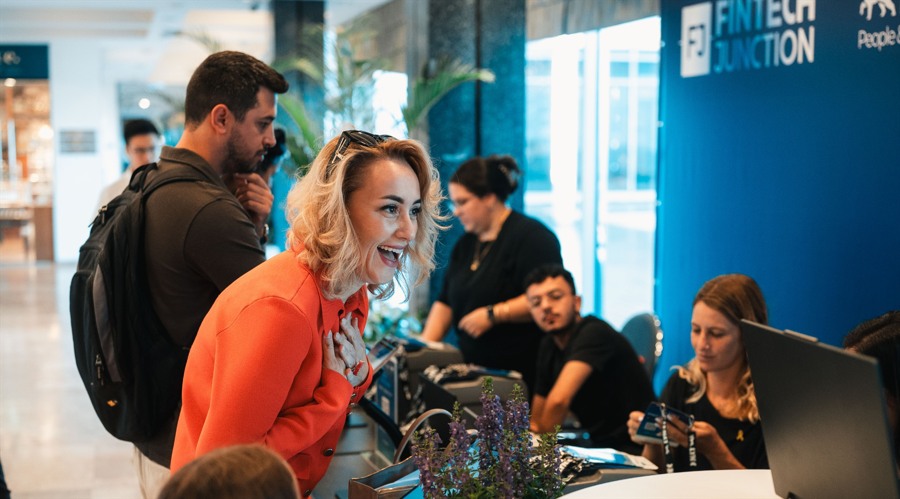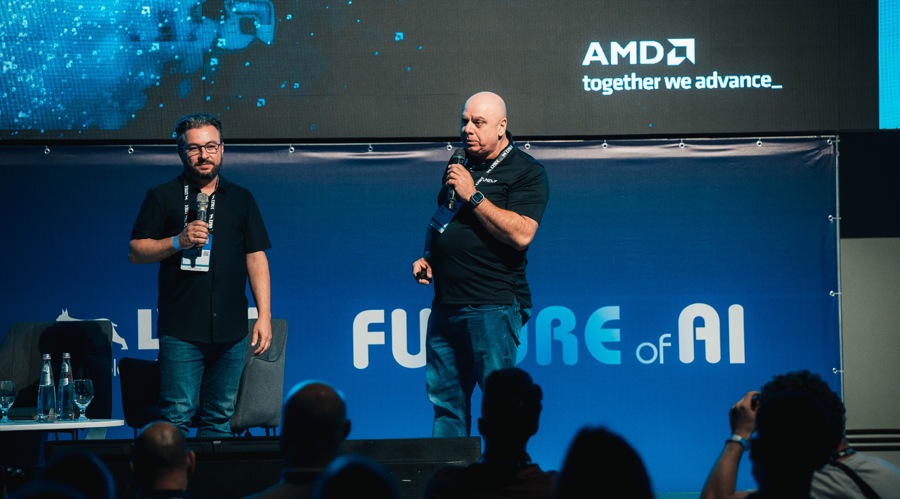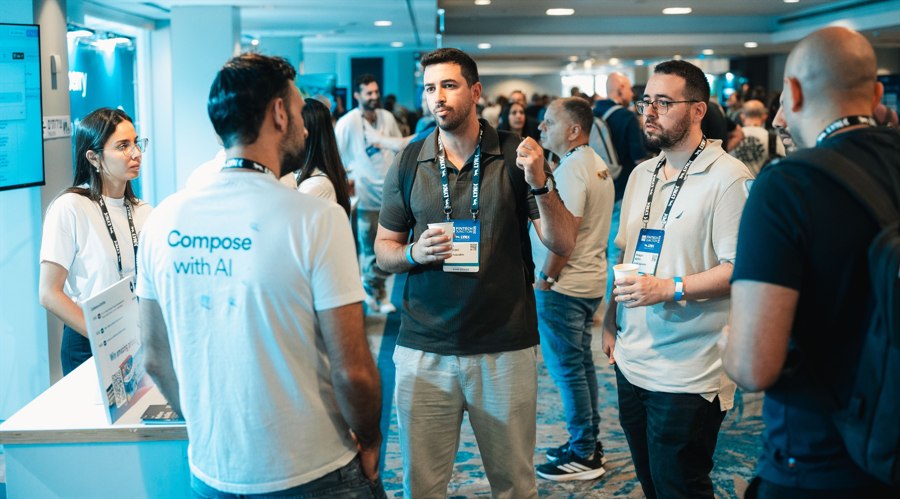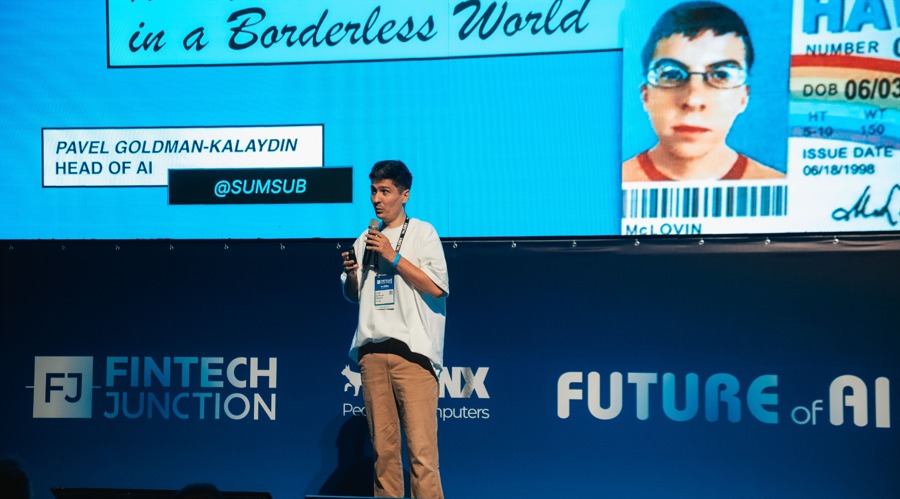“Almost everyone who touched crypto tried to kill it. In the end, it worked – but it took five years,” said eToro’s Founder and CEO, Yoni Assia, at the recent Fintech Junction event in Tel-Aviv, earlier this month. He recalled that his company bought Bitcoin at $5, adding: “The board pretty much crucified me for dealing with crypto, and the regulators also got angry at us for being a financial company working with what seemed very bad to them.”
Assia was among many high-profile speakers at the event, which brought together key figures from Israel’s fintech industry.
“I Love These Processes and the Changes Over Time”
The conference covered a wide range of topics, from Israeli business leadership to the country’s deep-rooted culture of entrepreneurship. The star, predictably, was AI. It was also one of the largest fintech gatherings in Israel since the outbreak of the country’s war with Iran.
Revealing his long-term vision for one of Israel’s leading fintech companies, Assia said: “I’ve been doing this for 18 years, and I’d be happy to take eToro to $100 billion and keep doing it for another 18 years because I love these processes and the changes over time.”

Other speakers also centred their remarks on entrepreneurship. Omer Nagar, Co-founder and CEO of The Garage, commented: “Entrepreneurs are an adaptive species — they know better than anyone how to align their startup with a changing reality. The ability to be prepared for both explosive growth and major crises is at the core of what’s expected from a startup today.”
While Assia and Nagar focused on vision and strategy, others addressed artificial intelligence and cybersecurity—two of the most discussed topics at the event.

Panellists explored themes such as “Israel’s unique position in the global AI landscape” and “scaling smarter with unified customer intelligence.” Representatives from chipmaker AMD also discussed the future of high-performance computing.
The audience was largely composed of innovative Israeli startups in data and AI. The Tel Aviv Stock Exchange and KPMG Israel also took part, along with payments firms like PayU and Payoneer.

“Now, It’s All about Deepfakes”
Once considered a buzzword, AI has now become a central topic for innovation—and concern. Discussions reflected a shift towards practical and security-related challenges posed by advanced AI tools.
Unsurprisingly, the use of AI by fraudsters came under scrutiny.
“People use AI for bad things, and we use AI to actually detect these bad things,” said Pavel Goldman-Kalaydin, Head of AI/ML at Sumsub.

He noted that a growing trend involves people selling fraudulent technologies rather than committing fraud themselves.
“You just sell deepfakes for cash—a small amount of cash—and then people use deepfakes to actually move money,” Goldman-Kalaydin explained. “The problem with deepfakes is that it’s difficult for us to tackle them. You have to do it globally.”
Reflecting on the evolution of fraud, he added: “I started working on identity maybe three years ago. Back then, it wasn’t about fake documents—it was all about real paper documents that people actually got and sold to each other. And there were no deepfakes at all. Now, it’s all about deepfakes.”
“Almost everyone who touched crypto tried to kill it. In the end, it worked – but it took five years,” said eToro’s Founder and CEO, Yoni Assia, at the recent Fintech Junction event in Tel-Aviv, earlier this month. He recalled that his company bought Bitcoin at $5, adding: “The board pretty much crucified me for dealing with crypto, and the regulators also got angry at us for being a financial company working with what seemed very bad to them.”
Assia was among many high-profile speakers at the event, which brought together key figures from Israel’s fintech industry.
“I Love These Processes and the Changes Over Time”
The conference covered a wide range of topics, from Israeli business leadership to the country’s deep-rooted culture of entrepreneurship. The star, predictably, was AI. It was also one of the largest fintech gatherings in Israel since the outbreak of the country’s war with Iran.
Revealing his long-term vision for one of Israel’s leading fintech companies, Assia said: “I’ve been doing this for 18 years, and I’d be happy to take eToro to $100 billion and keep doing it for another 18 years because I love these processes and the changes over time.”

Other speakers also centred their remarks on entrepreneurship. Omer Nagar, Co-founder and CEO of The Garage, commented: “Entrepreneurs are an adaptive species — they know better than anyone how to align their startup with a changing reality. The ability to be prepared for both explosive growth and major crises is at the core of what’s expected from a startup today.”
While Assia and Nagar focused on vision and strategy, others addressed artificial intelligence and cybersecurity—two of the most discussed topics at the event.

Panellists explored themes such as “Israel’s unique position in the global AI landscape” and “scaling smarter with unified customer intelligence.” Representatives from chipmaker AMD also discussed the future of high-performance computing.
The audience was largely composed of innovative Israeli startups in data and AI. The Tel Aviv Stock Exchange and KPMG Israel also took part, along with payments firms like PayU and Payoneer.

“Now, It’s All about Deepfakes”
Once considered a buzzword, AI has now become a central topic for innovation—and concern. Discussions reflected a shift towards practical and security-related challenges posed by advanced AI tools.
Unsurprisingly, the use of AI by fraudsters came under scrutiny.
“People use AI for bad things, and we use AI to actually detect these bad things,” said Pavel Goldman-Kalaydin, Head of AI/ML at Sumsub.

He noted that a growing trend involves people selling fraudulent technologies rather than committing fraud themselves.
“You just sell deepfakes for cash—a small amount of cash—and then people use deepfakes to actually move money,” Goldman-Kalaydin explained. “The problem with deepfakes is that it’s difficult for us to tackle them. You have to do it globally.”
Reflecting on the evolution of fraud, he added: “I started working on identity maybe three years ago. Back then, it wasn’t about fake documents—it was all about real paper documents that people actually got and sold to each other. And there were no deepfakes at all. Now, it’s all about deepfakes.”
This post is originally published on FINANCEMAGNATES.


